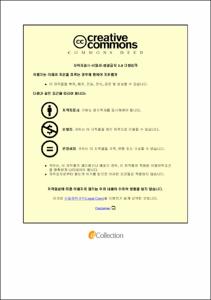O2O 외식배달 서비스품질과 업체품질이 재사용 의도에 미치는 영향에 관한 연구
- Alternative Title
- A study on the effect of O2O restaurant delivery service quality and company quality on reuse intention: Focusing on comparison between Korea and China
- Abstract
- With the development of technologies such as mobile technology, simple payment, and big data, the lives of modern people are changing significantly. Unlike in the past, when consumers visited stores in person, consumers can now search, order, pay online, and receive products or services in offline stores. This business pattern is spreading to various industries such as meals, leisure, entertainment, tourism, education, door-to-door makeup, and Didi Taxi as an online and offline (O2O) model. In particular, O2O delivery platforms account for the largest portion of the restaurant industry, and the number of delivery platform users has increased sharply due to COVID-19.
Various problems occurred as the O2O delivery market exploded in a short time. For example, false exaggerated advertisements on the platform and food hygiene of affiliates are included. Concerns are growing that consumer loyalty may decline and face a growth cliff in related industries as the quality of services decreases due to excessive competition among companies. Increasing the competitiveness of the platform and pursuing continuous development of the O2O market has emerged as a very important task.
Therefore, this study analyzed the effect on the reuse intention of O2O service users through online and offline satisfaction compared to Korea and China at a time when the O2O market is rapidly growing by combining literature research methods and empirical research methods. The empirical study analyzed the impact relationship between 12 variables, including online service quality, offline service quality, online company quality, offline company quality, online satisfaction, offline satisfaction, and intention to reuse.
A total of 348 online questionnaires were collected and used for empirical analysis, and the suitability of the research model was verified using smart PLS 3.0. All questionnaires used a Likert 5-point scale. In addition, reliability tests and validity tests were conducted to secure the reliability and validity of the questionnaire used in this study.
To summarize the results of empirical analysis, first, system quality does not affect online satisfaction. Information quality and customer service quality had a positive effect on online satisfaction. Second, diversity has a positive effect on online satisfaction in Korean analysis results and does not have a positive effect on online satisfaction in Chinese analysis results. The brand did not have a positive effect on online satisfaction in Korean analysis results, but had a positive effect on online satisfaction in Chinese analysis results. Third, delivery quality has a positive effect on offline satisfaction in Korean analysis results and does not have a positive effect on offline satisfaction in Chinese analysis results. Menu quality does not have a positive effect on offline satisfaction. Fifth, product quality had a positive effect on offline satisfaction. Environmental quality has a positive effect on offline satisfaction in Korean analysis results and does not have a positive effect on offline satisfaction in Chinese analysis results. Sixth, online satisfaction had a positive effect on offline satisfaction. Seventh, online satisfaction had a positive effect on the intention to reuse. Eighth, offline satisfaction had a positive effect on the intention to reuse. Finally, based on the results of the empirical analysis, e-commerce research grounds and O2O model research directions considering online and offline service quality, restaurant quality, and online and offline satisfaction were presented, and implications were actually presented.
- Issued Date
- 2022
- Awarded Date
- 2022. 2
- Type
- Dissertation
- Publisher
- 부경대학교
- Alternative Author(s)
- ZHANG YIBO
- Affiliation
- 부경대학교 대학원
- Department
- 대학원 정보시스템학과
- Advisor
- 김하균
- Table Of Contents
- Ⅰ. 서 론 1
1. 문제의 제기 1
2. 연구의 배경 3
3. 연구의 필요성 및 목적 6
4. 연구의 방법 및 구성 8
Ⅱ. 이론적 배경 11
1. O2O 외식배달 플랫폼의 개념 11
2. 한국의 O2O 외식배달 플랫폼 14
3. 중국의 O2O 외식배달 플랫폼 17
4. 서비스 품질 25
5. 외식업체 품질 34
6. 만족도 39
7. 재사용 의도 41
8. 연구모형에 대한 선행연구 43
Ⅲ. 연구방법 47
1. 연구의 모형 47
2. 연구의 가설 50
3. 변수의 조작적 정의 58
Ⅳ. 연구결과 67
1. 자료의 수집과 표본의 특성 67
2. 자료의 분석방법 72
3. 집단 간 차이 분석 74
4. 신뢰도 및 타당도 분석 76
5. 구조모형의 검증 84
6. 매개효과 분석 94
Ⅴ. 결 론 96
1. 연구결과의 요약 96
2. 연구의 시사점 101
3. 연구의 한계점 및 향후 연구방향 103
[참 고 문 헌] 104
[부 록] 114
- Degree
- Doctor
- Files in This Item:
-
-
Download
 O2O 외식배달 서비스품질과 업체품질이 재사용 의도에 미치는 영향에 관한 연구.pdf
기타 데이터 / 1.04 MB / Adobe PDF
O2O 외식배달 서비스품질과 업체품질이 재사용 의도에 미치는 영향에 관한 연구.pdf
기타 데이터 / 1.04 MB / Adobe PDF
-
Items in Repository are protected by copyright, with all rights reserved, unless otherwise indicated.